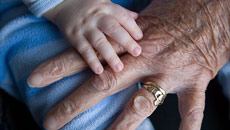More than 70 percent of healthcare in India is provided by corporate houses as a result of which poor people are not able to afford the high cost of medical care provided by private hospitals, health experts have said.
"Corporates give good healthcare but charge a lot of money," M.V. Padma Srivastava of the department of neurology at the All India Institute of Medical Sciences (AIIMS) said at a seminar at the India International Centre here Wednesday evening.
"Seventy percent of healthcare at present is given by corporates. Only 30 percent can afford it. So the others, that is the poor, cannot go anywhere," she said.
"Doesn't this need soul searching within our policy experts," Srivastava questioned.
The seminar 'High Stakes of the Withdrawal of the state from Healthcare' discussed the role of state in providing healthcare to the people of the country.

Srivastava observed that: "Health is not a luxury, it cannot be bartered. It has to be the state's responsibility".
Agreeing with her that more than 70 percent of healthcare in India was provided by corporate houses, Manoj Kumar Singh, senior pathologist at AIIMS said: "There are only 11 countries in the world which have lesser investment in healthcare than India. Every other country has more investment".
"There are only 12 countries across the world which have more spending on private healthcare than India," he added.
Singh said that government servants and many of the policy makers seem to have insulated themselves from state health care by going to private hospitals for treatment.
"Government after government has not made strong policies on healthcare," he said.

According to Ramgopal Agrawal, former chief economist World Bank Mission Beijing, India would become a high-income country by 2050 and all high income countries have high human development indices.
"Healthcare is a critical element of sustained growth. Unless we have a good healthcare system we cannot achieve high income," he said.





